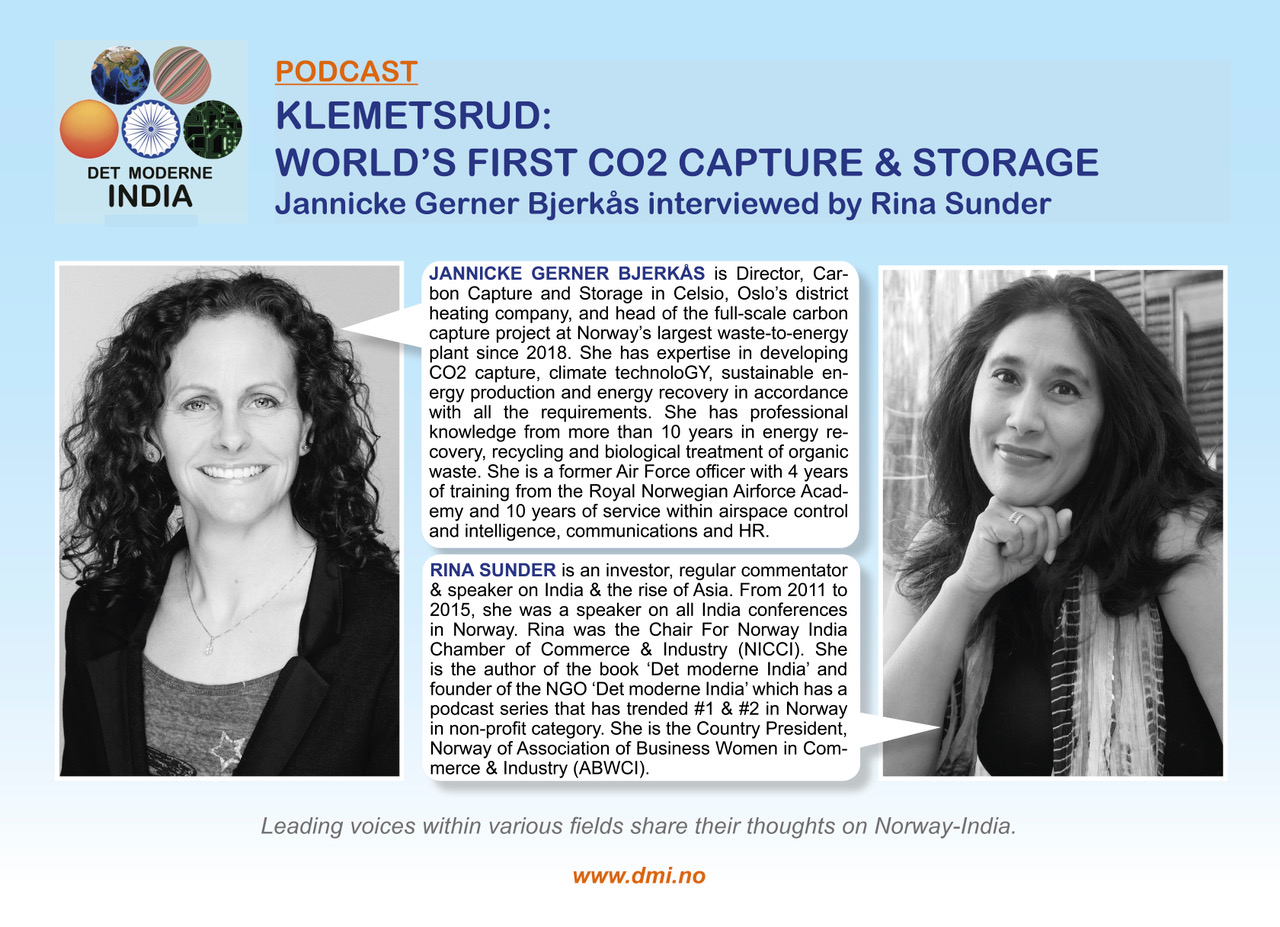
The Klemetsrud CO2 capture and storage project will be the world’s first waste-to-energy plant with full-scale CCS by 2026. Our guest for the this episode was Jannicke Gerner Bjerkås
So much is happening in the Carbon capture landscape!
Oil and Natural Gas Corporation Ltd signed a Memorandum of Understanding (MoU) with Equinor ASA, the Norwegian state-owned multinational energy company, for energy exploration and climate change mitigation options in March this year.
And just a week back Hafslund Oslo Celsio - Oslo’s district heating company - who is also heading the Klemetsrud project secured its funding.
Jannicke is Director CCS (Carbon Capture and Storage) in Celsio.
We asked her the following questions:
- Last week was a milestone for Hafslund Oslo Celsio. Norway’s largest waste-to-energy plant has secured the funding. How did this happen?
- Let us take a step back. For our listeners. What is Carbon Capture and why is CCS important to Norway?
- What does it mean to be full scale CCS. How will you enable capture and storage of 400 000 tonnes of CO2 in practice?
- The City of Oslo plans to slash greenhouse gas emissions by 95 per cent by 2030. The Klemetsrud waste-to-energy CCS project provides a blueprint for cities across Europe on how to best deal with non-recyclable waste, while producing heat and electricity for city inhabitants. What is it like to be a pioneer? Why waste-to-energy with CCS?
- Across the world, waste is an increasing problem, causing both local pollution to soil and groundwater and a climate issue as landfills are emitting large amounts of methane, contributing to climate change. The carbon capture project in Oslo provides a range of innovative solutions that can be exported to other countries. Please elaborate?
- Carbon capture is still in its infancy in India, and even at the global level, there are only 26 operational facilities capturing around 36 million metric tons (mt) to 40 million mt of carbon per year. How do you collaborate with other countries and cities for knowledge sharing in regard to CO2 capture and storage?
- Both ONGC and Equinor will collaborate in the field of upstream oil and gas, midstream, marketing and trading, besides exploring further options in low carbon fuel, renewables, Carbon Capture Storage (CCS) as well as Carbon Capture Utilization and Sequestration (CCUS) opportunities in India. But; let us keep the city perspective: What does the carbon capture project means for Oslo’s climate targets - and what can cities like Mumbai learn from this project?
You can listen to the episode here: